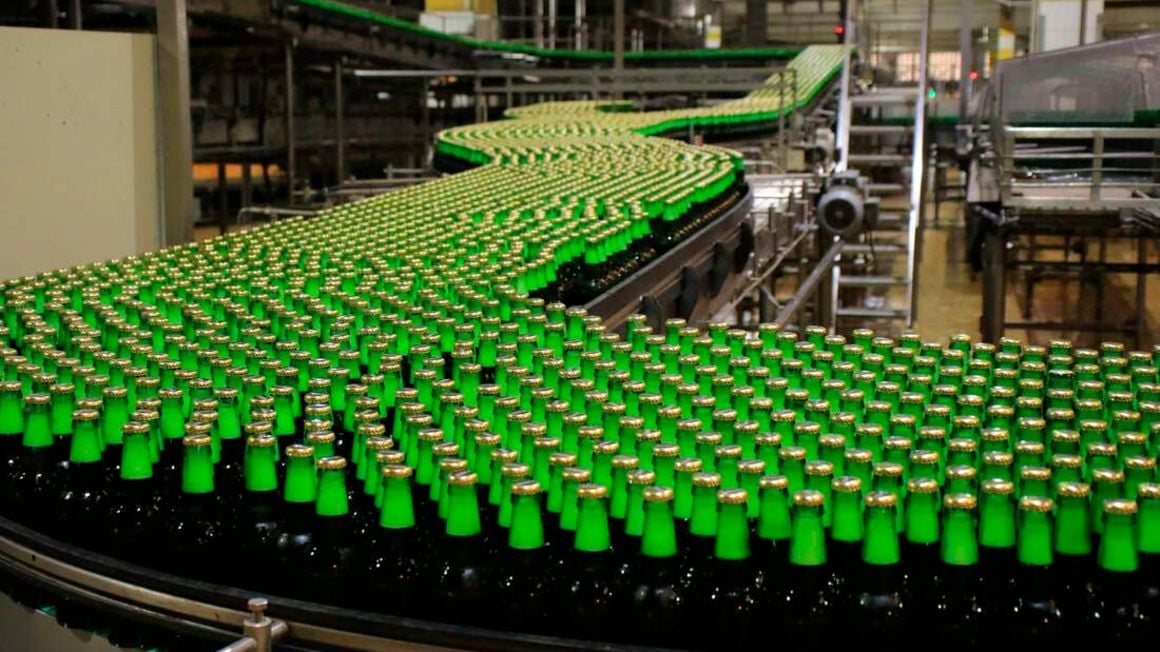
Beer production line at the EABL plant in Ruaraka, Nairobi. FILE PHOTO | JEFF ANGOTE | NMG
Alcohol and cigarettes have been spared from tax increases for the first time in five years after the Finance Bill left out the two products from excise duty adjustments,
handing manufacturers and consumers a major relief.The two products, alongside betting and luxury items, had become an easy target for excise tax increases by the President Uhuru Kenyatta regime, which unleashed back-to-back tax increases on the ‘sin industry’ as it sought to raise additional revenues.
Alcohol and cigarettes were for decades seen as price inelastic, meaning their consumption would not be hurt by price movements in either direction, making the products the easy targets for tax raids.
Read: KRA to collect extra Sh3bn from beer, juice, water taxes
The freeze on taxes for the sector comes on the back of intense lobbying by manufacturers who had warned that the higher taxes would result in lower revenues while leading to a spike in illicit trade.
East African Breweries (EABL) managing director Jane Karuku indicated during discussions on the Finance Bill last year that the brewer could no longer absorb costs from higher taxes and that such costs were to be passed on to consumers, raising the cost of beer, wines and spirits.
“I think the tax changes will be a disaster. Ten percent is too much. It will make beer and spirits very expensive which affects the whole ecosystem from farmers to bar owners and distributors. It will not be good for anybody,” she noted.
In another win for the sector, the government plans to scrap the annual excise rate adjustments that are currently being done every October.
The new Finance Bill proposes to halt the ritual that triggers price increases on excisable goods such as petroleum products, alcoholic beverages, cigarettes, bottled water, fruit juices, motorcycles and confectionery.
Instead, the Treasury is casting its excise duty net outside the traditional alcoholic beverages and cigarettes to include the introduction of a duty on imported fish, powdered juice, human hair, wigs, false beards, eyebrows, eyelashes and artificial nails.
In September last year, Kenya Breweries Limited (KBL) projected a Sh588 million hit to the income of sorghum and barley farmers in the lifting of excise duty rates by 6.2 percent.
An estimated 15,000 farmers have been contracted by the brewer to provide it with raw materials for the manufacture of alcoholic beverages.
KBL had projected a further loss of Sh20 billion to distributors and employment income.
Through the 2022 Finance Act, excise duty on beer not exceeding an alcoholic strength of six percent moved up to Sh134 per litre from Sh121.85 while the rate of duty on wine shot up to Sh229 per litre from Sh208.20.
Excise duty on spirits exceeding a six percent alcohol strength hit Sh335.30 a litre from Sh287.70 while duty on cigars shot up to Sh15,296.60 from Sh13,906.04.
Tobacco substitutes including e-cigarettes and nicotine pouches were also targeted in last year’s excise duty hikes alongside standard cigarettes and cigarettes with filters.
“The increase of excise duty is part of the tax base expansion though the increase may negatively impact the consumption of these products largely because of the expected increase in their costs,” tax analysts at KPMG had stated in their analysis of the Act.
“The increase is also aimed at curtailing consumption of goods that are considered harmful to health. However, most of these items have inelastic demand and such the increase in the price of the products in question may therefore not achieve the intended objectives.”
Excise revenues from beer, wines and spirits and cigarettes have begun to plateau suggesting a likely peak in collections from higher duty rates.
Data from the 2023 Economic Survey shows that excise revenues from beer fell to Sh27.34 billion from Sh28.61 billion even as duty collected from wines and spirits lifted off to Sh18.97 billion from Sh16.99 billion in 2021.
Excise revenue from cigarettes meanwhile remained unchanged in the period at Sh11.76 billion.
In 2021, nicotine substitutes were dragged into the tax net for the first time when they were slapped with duty at the rate of Sh1,200 per kilogramme.
Read: New beer, juice and cosmetic taxes kick in
A year earlier, low alcoholic strength beverages were slapped with excise duty for the very first time at the rate of Sh105.20 per litre in a move which pushed the prices of the alcoholic beverages, targeted at the low-end market.
The move was widely seen by tax analysts as an encouragement to the consumption of illicit brews.
→ kmuiruri@ke.nationmedia.com




No comments :
Post a Comment